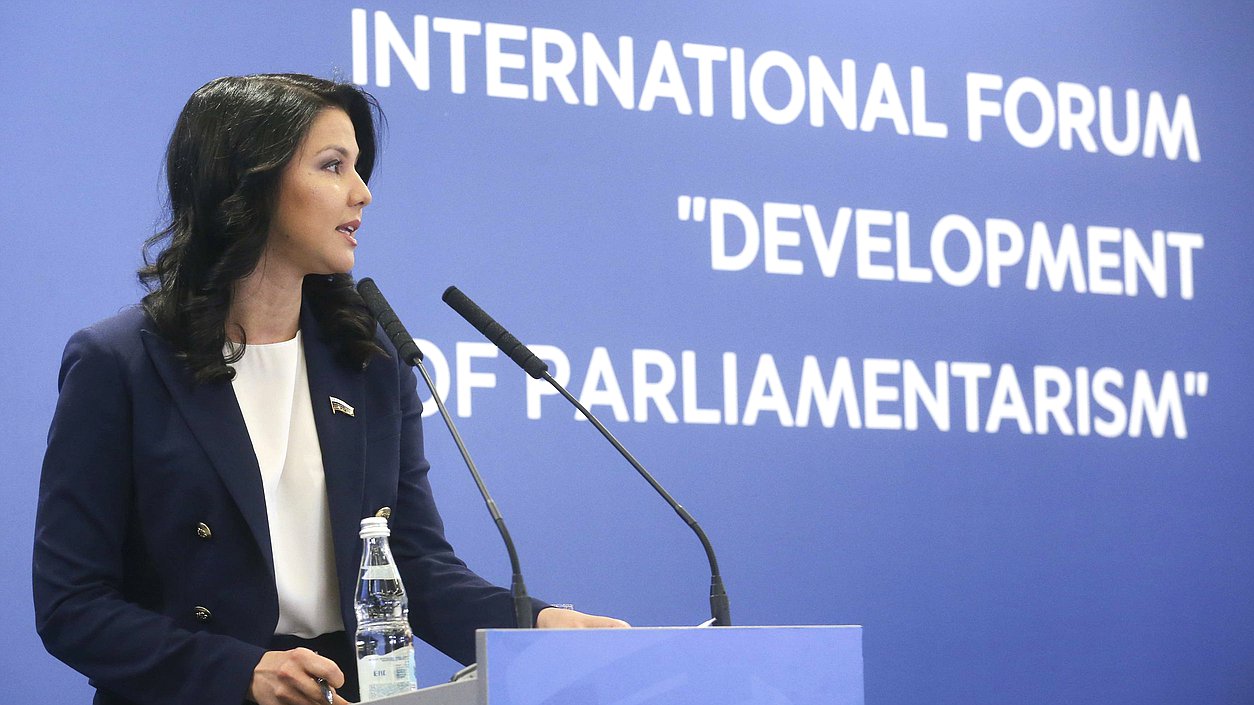
This topic became particularly relevant after Washington withdrew from the Iranian nuclear deal, and US President Donald Trump announced his desire to terminate the Treaty on Medium and Small-Range Missiles (INF).
Students, young specialists and scientists in the field of nuclear non-proliferation from leading American universities
(Stanford, Harvard, University of Michigan, University of Washington, Los
Alamos National Laboratory) and from MEPhI were invited to the State Duma by a member of the United Russia faction Inga Iumasheva

Inga Albertovna
.
“Many experts and politicians are of the opinion that building a dialogue in the absence of trust is impossible. However, I believe that trust is not so much a prerequisite of interaction, but, on the contrary, its result. It is born in the process of communication, in the course of bilateral contacts and meetings, and is strengthened by constructive steps and decisions aimed at maintaining a dialogue,” said Iumasheva, answering a question from one of the participants of the meeting regarding possible ways to restore trust between Russia and the United States.
The member of the State Duma added that a dialogue is needed at the parliamentary level, at the level of public organizations, universities, research centers. “Today’s meeting is one of the examples of such a dialogue, and the more such meetings we have, the better mutual understanding we will achieve,” Iumasheva noted.
The head of the American delegation, Professor at Stanford University Siegfried Hecker, in his turn, admitted that US students appreciated the opportunity to visit the State Duma and discuss the most important problems of nuclear safety with parliamentarian Inga Iumasheva, the heads of the Committee on International Affairs, the Committee on Education and Science and representatives of the Office of the State Duma.
“Russia and the United States are jointly responsible to the world for cooperation in the prevention of a nuclear threat and the peaceful use of the benefits of nuclear energy. Our meeting with representatives of the State Duma helped us to understand more deeply the complexity of the existing problems. It was an important step towards building trust between the younger generations of our countries,” said Hecker.
The Chairman of the Committee on Education and Science, Viacheslav Nikonov

Vyacheslav Alexeyevich
, believes that ”the current situation in bilateral relations between Russia and the United States is even more
complicated than it was during the Cold War.“ According to the member of the State Duma, then there were various forms of a dialogue and there were no
personal sanctions, now ”a lot of parliamentarians are on the blacklist.“
Nikonov believes that the only way to build trust is a dialogue, but at the same time, the USA puts obstacles in the way of such dialogue because any contacts with Russia bring criticism and accusations against politicians and become “political suicide” in this country.
Leonid Slutskiy

Leonid Eduardovich
, head of the Committee on International Affairs, expressed his view on the situation, stressing that more
work is needed in the field of civil society to restore the level of trust
between Russia and the United States. The parliamentarian touched upon the problems of relations between Moscow and Washington, including in the framework
of cooperation in the nuclear field.
“The withdrawal of the United States from the ABM Treaty and today's plans to withdraw from the INF Treaty are two parts of the same. Withdrawing from the ABM Treaty, the United States implemented its vision of missile defense, placing bases in those countries and in those territories from which, from the point of view of Washington, the states that they have artificially placed on the virtual ”axis of evil“ can be reached. This is North Korea and Iran, and so on. However, the elements of this new missile defense of the United States have consistently pulled up to the borders of Russia, which, naturally, we have always opposed,” said the parliamentarian.
He hopes that the chaos in the development of weapons programs on the planet will not start, and the coming year will be decisive in terms of whether Russia and the United States will construct a peaceful architecture in the 21st century or will the world again be thrown into a new arms race as a result of Washington’s policies.
“In my opinion, another area where we can restore trust and relationships is a civil society. We shall work more with young people, with foundations, with universities. The potential of thousands and thousands of people is concentrated there,” concluded Leonid Slutskiy.


